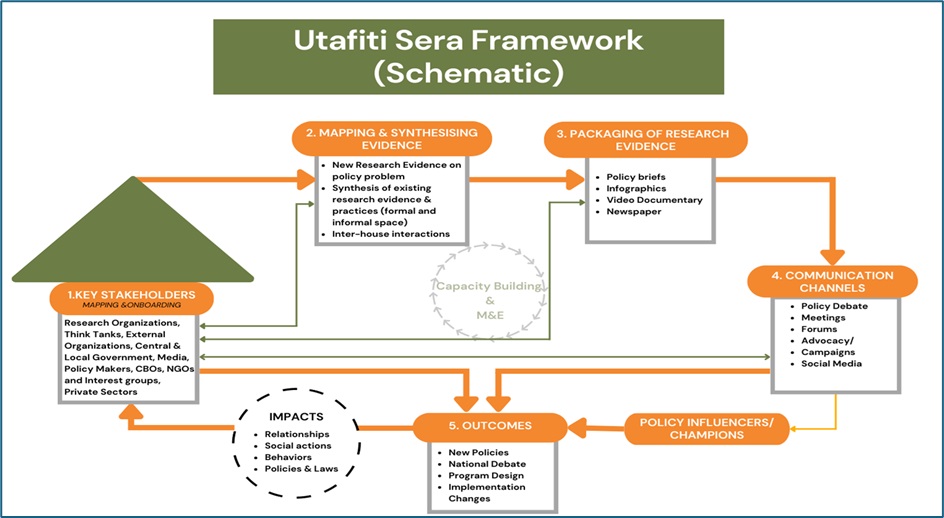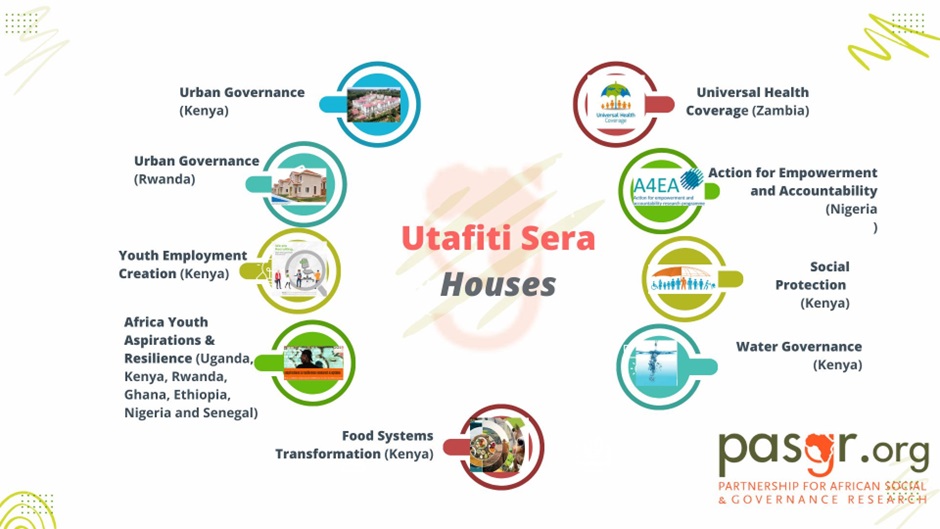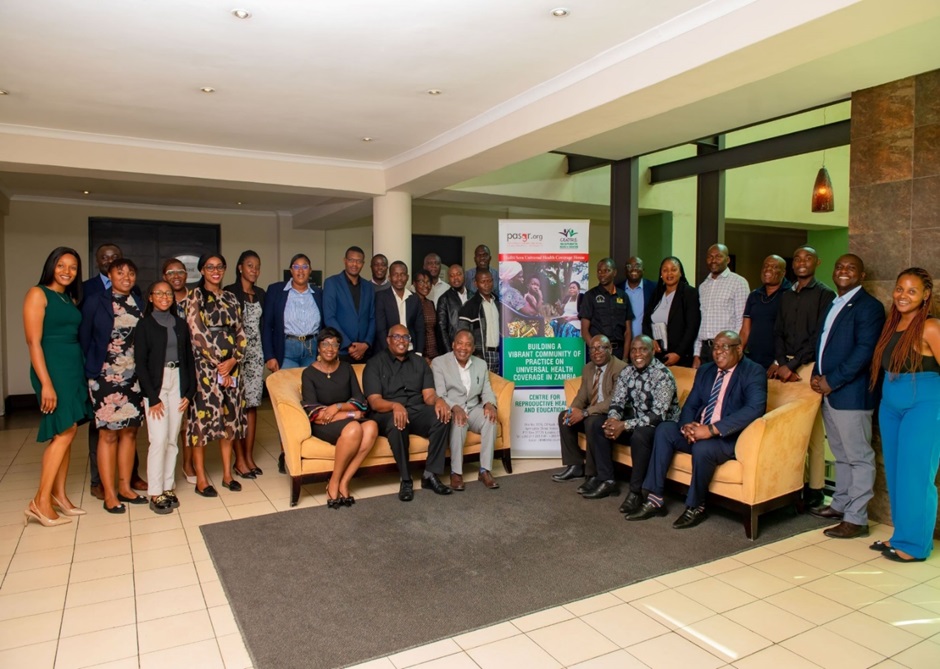Contact Info
- 6th Floor, I & M Building 2nd Ngong Avenue, Upper Hill
- +254 (0)20 2985000; +254 (0)729 111031 / +254 (0)731 000065
- info@pasgr.org
- Office Hrs: Today 9.00am to 6.00pm
By Jim Kaketch and Elijah Kabari: Lusaka, Oct 1, 2024
In recent years, Africa’s public policy-making landscape has been rapidly evolving to keep pace with the complex interplay of interests, geopolitics, and emerging evidence-based approaches. One of the most significant developments has been the shift towards frameworks that measure policy outcomes, not only by their effectiveness but also by their competitiveness, inclusiveness, and, crucially, the use of evidence.
This shift is underscored by a growing recognition of the connection between evidence generation and decision-making institutions. Notably, funders and international organizations are supporting research programmes designed to generate evidence alongside public policy dialogues. The policy dialogues leverage the evidence generation to shape policy outcomes and establish legitimacy. However, despite the growing endorsement of evidence use, the policymaking process remains influenced by competing interests, such as politics, ideology, and budgetary constraints, which often overshadow the best available evidence.
Coupled with competing interests is the widening gap between policymakers and research institutions including the differences in policy language, operational spaces, and objectives. This hinders the uptake of evidence, making it difficult to bridge the divide between these two crucial actors in the policy space. Moreover, there is a lack of clarity about the strategies that effectively build capacity for evidence use and which aspects of capacity have the most influence on research use in the varied policy cultures across Africa.
In response to these challenges, the Partnership for African Social and Governance Research (PASGR) and its partners have, since 2015, pioneered an innovative approach known as Utafiti Sera. This approach is designed to bridge the gap between evidence and policy processes by fostering a unique and practical engagement that encourages the growth of communities of practice around specific policy issues.
Utafiti Sera supports meaningful, equitable participation by diverse stakeholders in the evidence-informed decision-making (EIDM) process. Through systematic engagements and deliberations, it allows for the creation of a continuum in which evidence and policy processes are interconnected. The cornerstone of the approach is the Utafiti Sera Houses, which serve as hubs for knowledge transfer and the documentation of policy cultures across Africa’s diverse landscapes. The Utafiti Sera approach moves away from traditional linear relationships between research and policy, recognizing that these methods are often ineffective when dealing with the complexities of real-world policymaking. Instead, the model fosters collaborative spaces where researchers, policymakers, and citizens can co-create and share evidence, leading to more inclusive and informed policy decisions.

Establishing Research-Policy Communities Across Africa
Since its inception, Utafiti Sera has established several research-policy communities, referred to as “Houses” which are centered around national policy issues in Africa. These include:
These Houses have expanded the frontiers of EIDM in Africa by creating safe spaces for cross-sectoral collaboration, where research and policy can come together to solve pressing national issues.

The Inter-House Convening: A Platform for Cross-Learning and Collaboration
One of the most exciting aspects of the Utafiti Sera approach is the Inter-House Convening, that brings together key actors from various Utafiti Sera Houses. This convening serves as a platform for sharing experiences, lessons learned, and strategies for effective policy uptake. Participants from diverse disciplinary backgrounds collaborate to showcase the most compelling evidence and uptake tools, drawing on their experiences to rethink and reshape the future of the Utafiti Sera approach. Against this background, PASGR in collaboration with the current Utafiti Sera Houses have organized an Inter-House convening in Lusaka, Zambia from October 1 – 3, 2024.
The three-day convening will target around 40 participants, including House leaders and key policy champions. It will involve candid, participatory discussions, presentations, and brainstorming sessions. These activities will enable participants to learn from one another’s successes and challenges, further improving policy uptake in their respective areas of work.
Participating Utafiti Sera Houses
The participating Houses in this year’s convening that is being hosted by our newest House, the Universal Health Coverage, Zambia include:
The Utafiti Sera approach represents a significant innovation in the quest for evidence-informed policymaking in Africa. By fostering collaboration between researchers, policymakers, and citizens, through co-co-creation policy-driven stakeholder engagements for enhancing EIDM, the Utafiti Sera approach is redefining how policies are shaped and implemented across the continent. The continued growth of these Houses and the success of initiatives like the Inter-House Convening will be crucial in ensuring that the best available evidence is used to address Africa’s most pressing policy challenges.

A4EA AAU advanced research design African universities agriculture Applied Quantitative Methods APSP ARD CABE call for applications cash transfers COVID-19 employment energy EOI Featured higher education IDS INCLUDE Job opportunity LEAP Africa MMRC MRPP opportunities opportunity PAMOJA TRUST partnerships PASGR PDT pedagogy PedaL press release professional development and training professional training public policy Research research methods scholarships social protection Social sciences University of Ibadan University of Pretoria utafiti sera vacancy Youth employment

6th Floor, I & M Building
2nd Ngong Avenue, Upper Hill
P.O. Box 76418-00508
Nairobi, Kenya
Email: info@pasgr.org
Tel: +254 (0)20 2985000;
+254 (0)729 111031 / +254 (0)731 000065
Legal counsel provided by Hurwit & Associates and Muthoga Gaturu & Co. Advocates